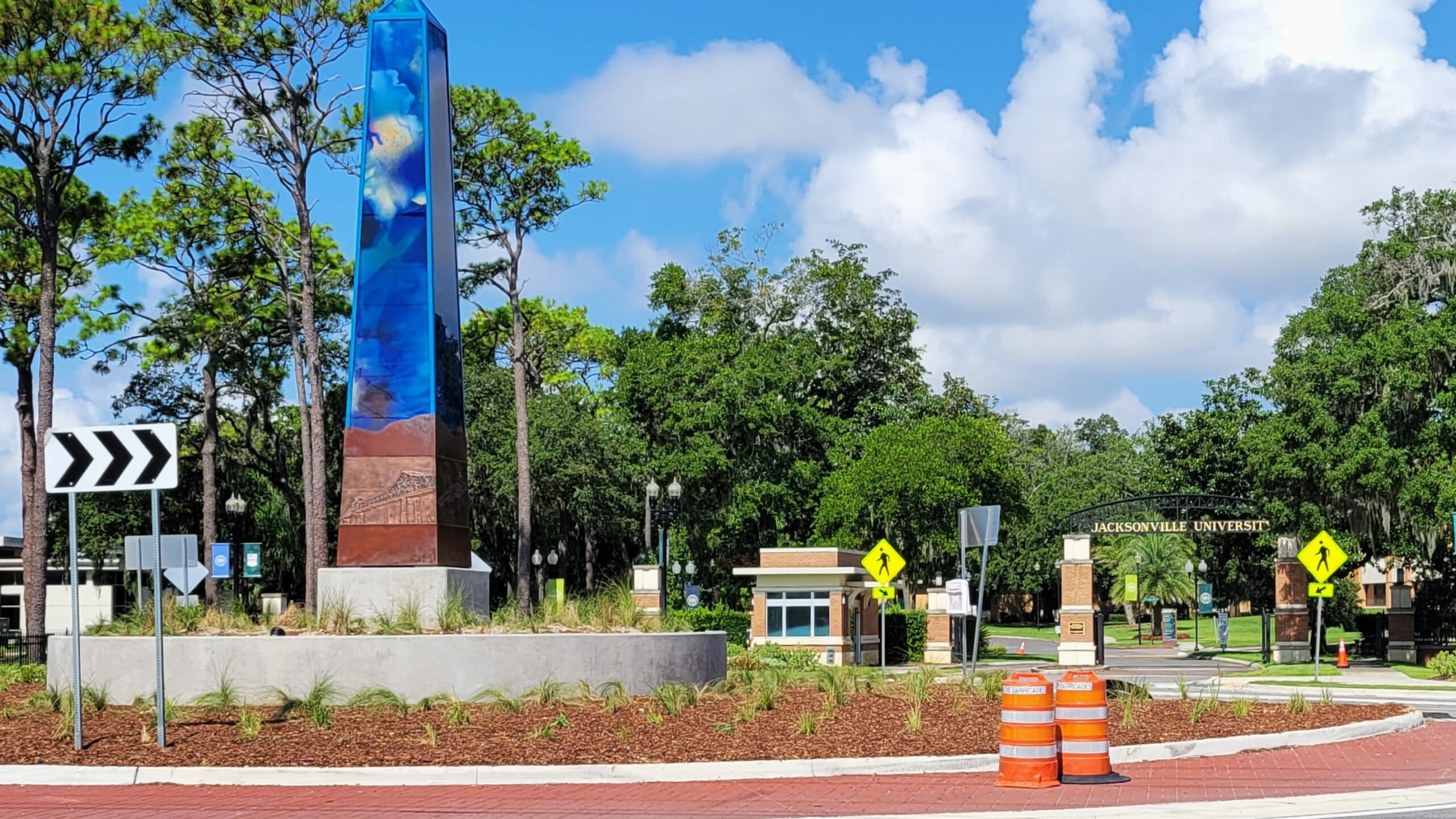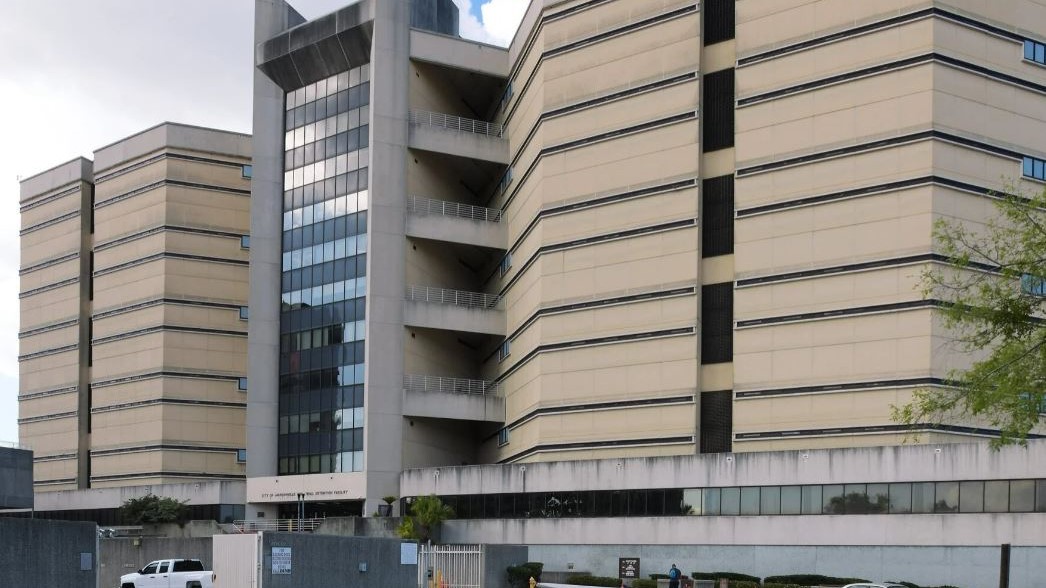It stands tall, bronze and blue at the center of a traffic roundabout outside Jacksonville University’s entrance. Spotlights are ready to help it glow at night as hundreds of cars, trucks and JTA buses circle its concrete perimeter.
While passing drivers may not have time to gaze at it, the four-sided obelisk by artist Shan Shan Sheng is girded with embossed images of an aircraft carrier, a movie cameraman and the nearby Mathews Bridge.
The 31-foot-tall sculpture towers over multiple lanes designed to improve traffic safety at the busy intersection. Tim Snyder, dean of the College of Fine Arts & Humanities, said it shows that public art matters to communities.
The school believes the sculpture to be the tallest glass public art piece of its kind in the world. Snyder called it a “pretty bold statement” that is causing some people to stop, stare and smile.
“It tells the community that their space matters, that this is at once the entrance to the university, but it is also an invitation to the community to come beyond the gates,” he said as traffic circled the obelisk. “To think, at this intersection which just a few months ago was filled with cables, electrical lines and the billboard and cracks and graffiti, an example of urban planning at its worst, and to transform it to something I hope everyone is proud of, is profound.”
The artist visited the campus over the spring as the 20-foot glass panels were being crafted in Germany. She said her inspiration for the bronze reliefs came from the area’s history, to leave something for the next generation to discover. The colors on the obelisk’s glass panels reflect the nature around Jacksonville, she said.
“It’s like underwater, like coral reefs,” she said in April. “Then you will see kind of like trees and a waterfall. It’s mostly abstract, but you can clearly see a waterfall. Then gradually you see the blue sky and white clouds.”

The roundabout was officially opened 17 months ago at University Boulevard North and Merrill Road. It replaced traditional traffic signals and turn lanes at an intersection that handles about 30,000 cars a day. The design lets traffic flow through dedicated lanes circling a landscaped median without stopping except for when walkers or bicyclists trigger crosswalk signals.
A search was held in 2019 for an artist to add what JU calls “a love letter to the Arlington community” to the $4 million JTA MobilityWorks’ project outside the university’s main entrance. A committee that included the Cultural Council, plus Snyder, local artists and engineers, reviewed more than 40 proposals, picking three finalists before Sheng was chosen.
The Shanghai-born artist said she wanted the work shaped like an ancient obelisk as seen in Rome and Egypt, which also had designs on each side to reflect their community. Along with the bridge image, there is one of the 112-year-old Norman Studios’ Production Building, a national historic landmark on Arlington Road, then an aircraft carrier like those once berthed at Naval Station Mayport. The fourth side contains a dedication plaque.
The university also plans to install a plaque on the southeast corner of the intersection describing the details of the obelisk, who designed it and why it is there, Snyder said.
“As we were nearing completion of this work, we realized that this is piece that was missing,” he said. “That storyboard will tell the story of the artist, the artist’s statement, and it will give the significance of the images that are in relief on the bronze base.”
The obelisk stands atop a concrete ring filed with landscaping, then a taller landscaped base, a 9-foot core of bronze with colorful glass above. So the actual glass panels, 11 feet above ground level, are engineered to be above any potential automobile impact.
The $800,000 project is funded by various donors and Jacksonville University. Some minor work must be done to the obelisk and landscaping before its official ribbon-cutting Sept. 21. The vent will include the debut of a musical composition in its honor by JU Choral Studies Director Julian Bryson.
9(MDEwNzczMDA2MDEzNTg3ODA1MTAzZjYxNg004))







